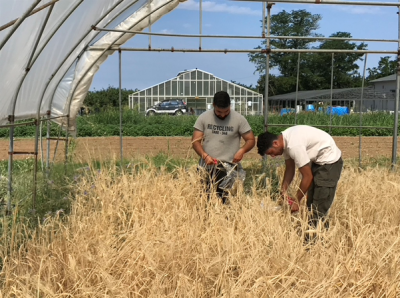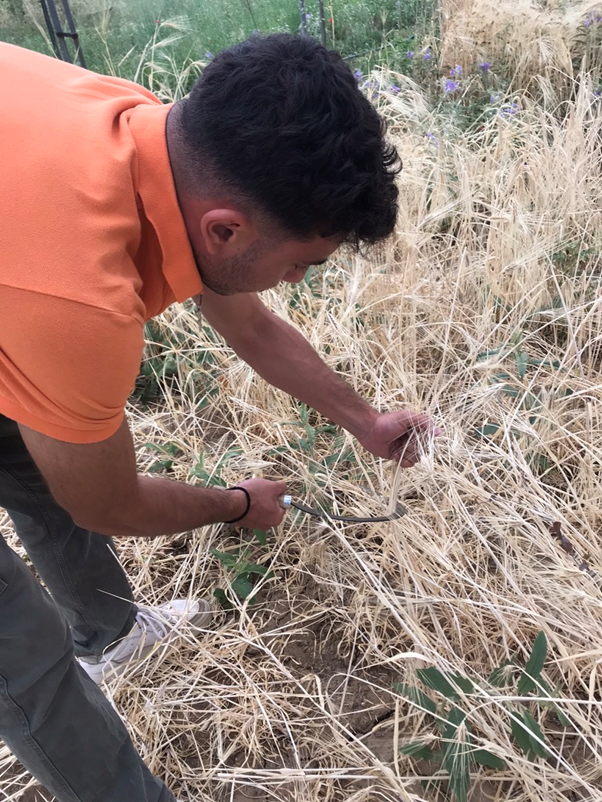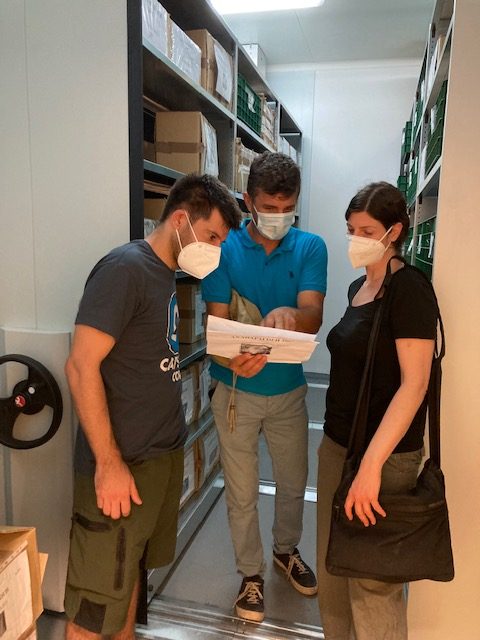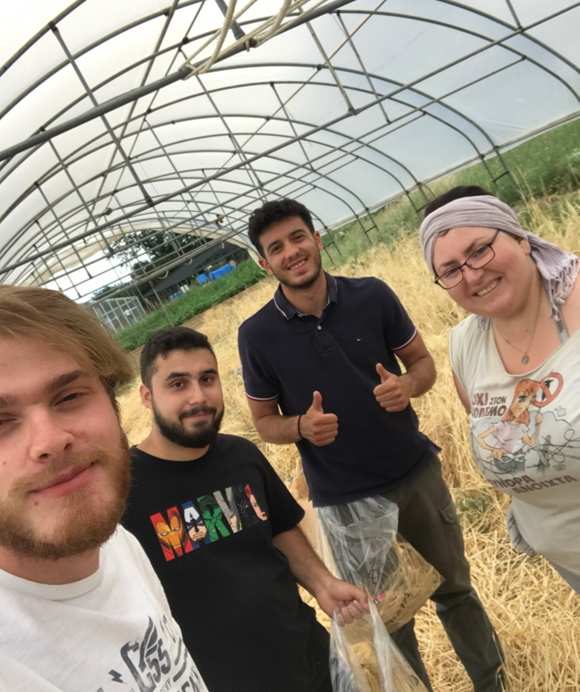
After a long month of meticulous and detailed measurements and observations at GIAP’s experimental cultivations in Thermi (Thessaloniki, Greece), it is finally time to commence the harvest, one of the most critical and relevant stages of the project.
GIAP (ICAC) researcher Alexandra Livarda is leading a research project that includes barley experimental cultitavion in Greece, with the aim of developing new tools to explore what agriculture was like in the past and to turn this knowledge into benefits for contemporary agriculture.
This project with experimental cultivation is done in collaboration with the Institute of Plant Breeding and Genetic Resources in Greece (HAO), where the Greek Genebank is located. In addition to HAO colleagues there, there is on-site supervision by GIAP (ICAC) PhD researcher Alexandra Kriti, who directly supervises the development of the experimental cultivations and now, the harvest tasks.
For now, experimental crops have been grown by selecting 23 varieties of barley, which is one of the most common cereals found in archaeological excavations in the Mediterranean. These varieties are being grown experimentally, under different irrigation and fertiliser regimes. The first harvest was successful, and it was possible to collect the grain: a large amount of material that has made it possible to provide five different varieties of barley whose morphology has been recorded in 3D.
The current harvest started in early June, and it is still ongoing due to the heavy manual yet focused work it entails. The harvested barley heads and their respective grains will be used to undertake further agronomic measurements and analysis.
The DarkRevisited team is hopeful that the weather will be with them and that they will be able to finish the harvest without any setbacks and obtain optimum, healthy material with which to work in the coming months.

This is the first time such a thing has been done in archaeology, since, unlike other archaeological materials (e.g. animal bones or pottery), seeds are tiny in size and it is very difficult to scan them accurately in 3D.
By being able to record the morphology of barley seeds in 3D with a high-precision scanner, these researchers get to take thousands of measurements from a tiny seed. These measurements are processed with machine learning, an AI method that leads to the development of very specific calculation algorithms adapted to the needs of each sample.
GIAP (ICAC) researcher Hèctor Orengo is working precisely on the development of these algorithms and, with his results, it has been possible to classify the seeds according to whether they belong to different local varieties and the cultivation regimes under which they have been grown.

The “Dark Revisited” project started the innovative experimental cultivations in 2020 at the ELGO Demeter facilities in Thermi (Thessaloniki, Greece). The main objective of the project (which can be found on the ICAC website) is to scan and measure thousands of barley seeds of known varieties and combine them with different types of cultivation, in order to develop an algorithm to infer results about past agriculture from archaeological material (ancient seeds) found at archaeological sites in Greece.
This will be an important step forward for the discipline of Archaeobotany, as it will provide new insights into how economic decisions were made in the past. At the same time, experimental cultivation involves the monitoring of traditional barley varieties (varieties developed before industrialisation) which provides us with a fascinating and detailed level of information on the performance of these varieties and their nutritional value.
The results of the project could contribute to present-day agronomic decision-making, as well as to the possible introduction of new varieties of crops that give better results and guarantee food security in our times, which are becoming increasingly difficult for the proliferation of monocultures and the associated risks they entail.
This research is funded by the project The Aegean ‘Dark Ages’ revisited: a novel approach to old debates on agricultural economy and food culture – DarkRevisited (R&D&I project PID2019-107605GB-100, Spanish Ministry of Science, Innovation, and Universities) and the Ramón y Cajal programme (RYC-2017-22105, Agencia Estatal de Investigación) of GIAP researcher Alexandra Livarda.






